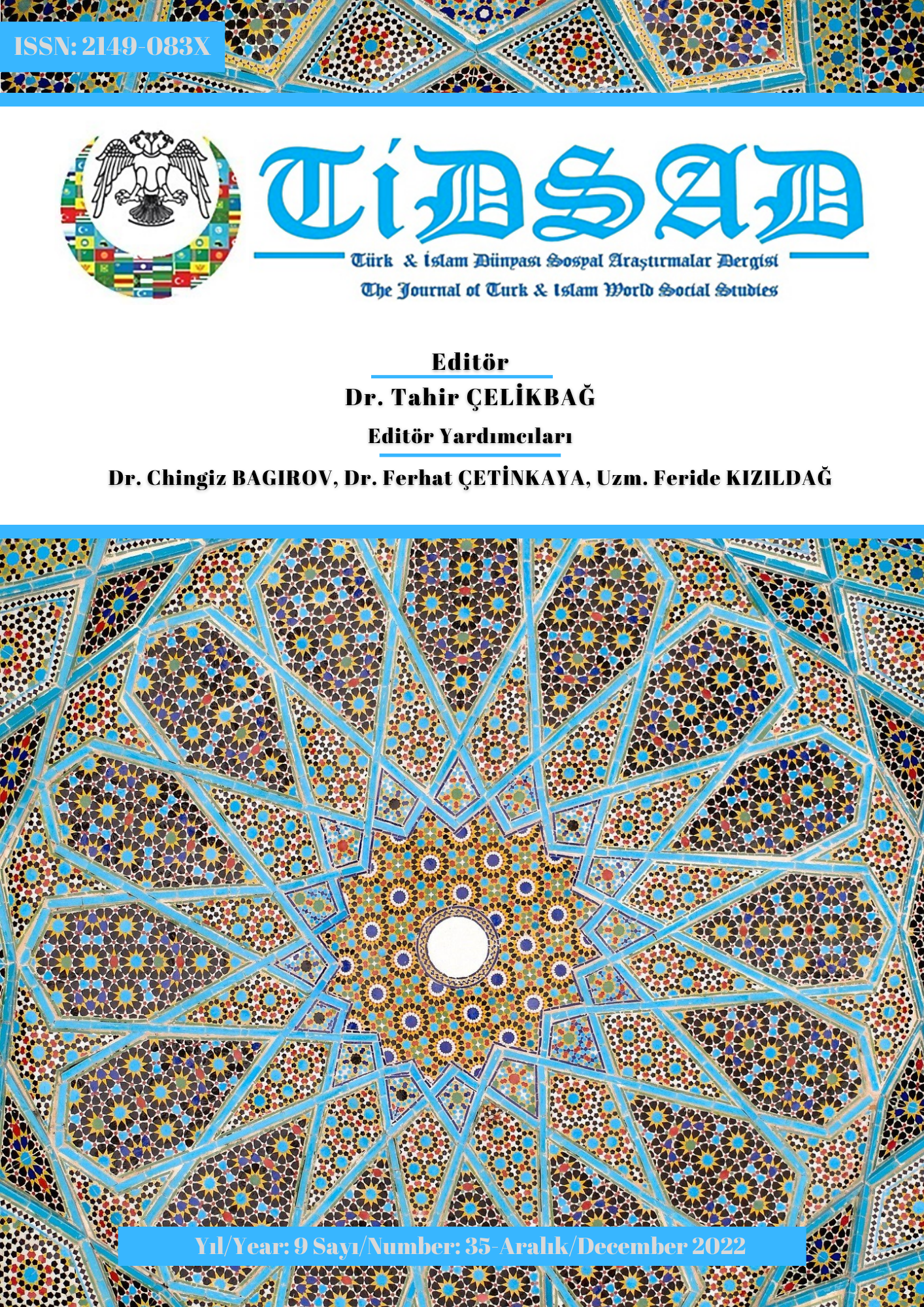Author :
Abstract
Malatyalı Mehmed Necatî 19. yüzyıl şairlerindendir. Manzumelerinde, önceleri Fehmî mahlasını kullanan şair, daha sonra Necatî mahlasını kullanmaya başlamıştır. Dinî, tasavvufî ve sosyal konulu şiirler söyleyen Malatyalı Necatî, şiirlerini bir divanda toplamıştır. Şair, etrafında cereyan eden olaylara karşı duyarsız kalmamış, bunları şiirlerinde konu edinmiştir. Afyon Destânı, Destân-ı İhrâk-ı Sânî, Medh-i Câmi‘-i Şerîf-i Malatıyye sosyal konulu şiirler arasında sayılabilir. Necatî’nin şiirlerinde, devrin padişahı II. Abdulhamid’in adı da geçmektedir. Şair, sultan için bir methiye de söylemiştir. İstanbul’da, Kuleli Kışlası’nda ikinci imam olarak görev yapan Necatî’nin, II. Abdulhamid’i burada daha yakından tanımış olduğu söylenebilir. Bu çalışmada, Malatyalı Necatî Divanı’nda yer alan II. Abdulhamid için yazılmış methiye incelenecek ve divandaki diğer şiirlerde Necatî’nin II. Abdulhamid’i hangi vesilelerle konu edindiği değerlendirilecektir.
Keywords
Abstract
Mehmed Necati of Malatya is poet who lived in the 19th century. He used the pseudonym of Fehmi early in his poetry but later changed it to Necati. Necati of Malatya used themes such as religion, mysticism, and society in this poetry and collected them in a dewan. He was not indifferent to the social events occurring around him and reflected them in his poetry. The Epic of Opium, the Epic of Sani Burnings, and The Praise on the Grand Mosque of Malatya are among his poems which cover social issues. The contemporary sultan of the Ottoman Empire, Abdulhamid II is mentioned as well in his poem. Necati also composed an ode on him. It may be stated that the poet could have become familiar with the sultan while he worked as the second preacher (imam) in Kuleli Barracks, Istanbul. This study analyses the ode on Abdulhamid II included in the Dewan by Necati of Malatya and evaluated how the poet represents and characterises the sultan.
Keywords
- Bostan, İ. (1989). Akdeniz. İçinde Türkiye Diyanet Vakfı İslam Ansiklopedisi. (Cilt 2, ss.231- 234). TDV Yayınları.
- Çeçen, M. K. (2015). Malatyalı Necatî divanı. Grafiker Yayınları.
- Işık, A. (1998) Malatya 1830-1919.
- Küçük, C. (1988). Abdülhamid II. İçinde Türkiye Diyanet Vakfı İslam Ansiklopedisi. (Cilt 1, ss.216-224). TDV Yayınları.
- Satılmış, S. (2021). Osmanlı Devleti’nde afet yönetimine bir örnek: 1889 ve 1890 Malatya yangınları. Osmanlı Medeniyeti Araştırmaları Dergisi. 13, 101-128.
- Vak’anüvîs Ahmed Lutfî (2021). Dîvânçe ve münşeât-ı Türkiyye (inceleme-metin-dizin). (Haz. Abdulmuttalip İpek). DBY Yayınları.





